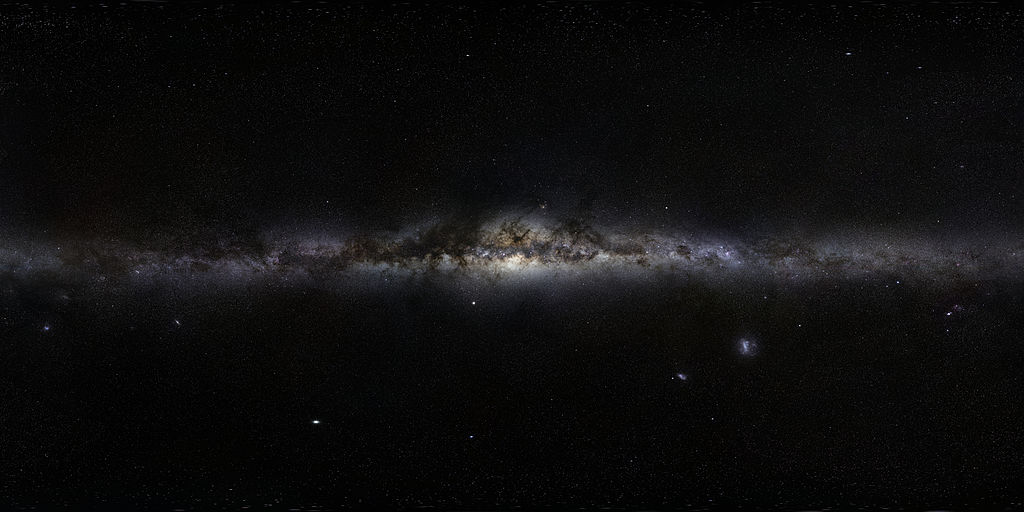
The Milky Way panorama by ESO/S. Brunier (The Milky Way panorama) [CC-BY-3.0 (http://creativecommons.org/licenses/by/3.0)], via Wikimedia Commons
If you're like me, which you're probably not, then you'll enjoy thinking about some of the ridiculously big numbers that crop up in science and particularly in relation to space, which is almost definitely the biggest thing there is.
Thanks to Kepler the estimate of the number of habitable or 'Earth-like' planets in the Milky Way has just been revised up to two billion. While this is unarguably a lot it's worth remembering that our galaxy has a diameter of 31 kiloparsecs or 100,000 light years. Given that light travels 299,792 kilometers every second that is an exceptionally big thing.
Think about how big the galaxy is for a moment, and then recall that the visible universe has an estimated diameter of 93 billion light years and contains at least 100 billion such galaxies...
Someone once said to me that they're 'not really that interested in space', which to me equates to saying that you're not very interested in practically all of everything. Sure, there's plenty of engaging stuff going on down here at our microscopic level, but how could you not want to look up once in a while?
RT @_ade: Space http://t.co/Irp8wTyEpq
Space http://t.co/Irp8wTyEpq